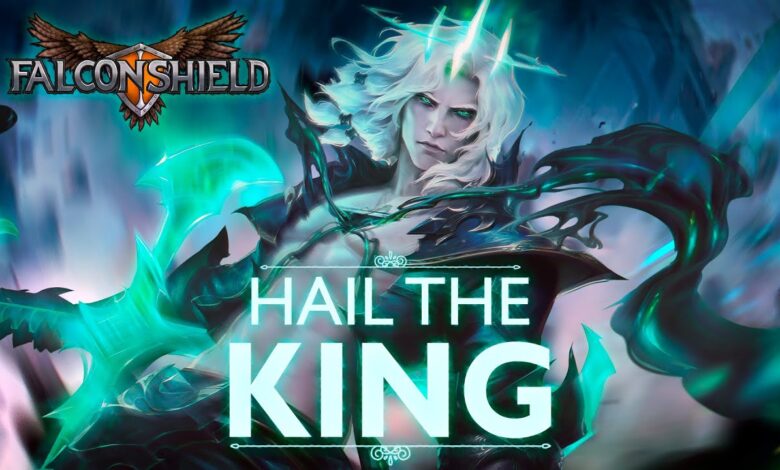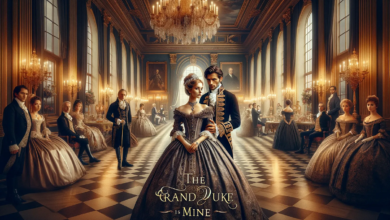Hail the King: The Timeless Fascination with Royalty in Modern Culture

“Hail the king!” These words, imbued with a experience of reverence and awe, evoke pictures of majestic rulers and grand ceremonies. In cutting-edge society, the fascination with kings and monarchy keeps to thrive, manifesting in various cultural expressions and reflecting deeper psychological and social subject matters. This article explores the long-lasting enchantment of royalty, the cultural importance of kingship, and the reasons at the back of our collective inclination to “hail the king.”
The Historical and Symbolic Roots of Kingship
The concept of kingship has ancient origins, rooted within the earliest human societies where the king become seen as the final authority, frequently with a divine right to rule. This belief of kingship as each a political and spiritual institution has left a lasting imprint on our collective focus. The phrase “hail the king” traditionally signifies respect, loyalty, and the acknowledgment of the king’s preferrred energy and function as a protector and unifier of the people.
Kingship in Modern Media
The fascination with kings and royalty has determined a significant place in modern media, consisting of literature, movie, television, and video games. This cultural illustration maintains the idea of kingship alive and constantly evolving.
Literature: Classic works along with Shakespeare’s “Macbeth” and modern fable series like George R.R. Martin’s “A Song of Ice and Fire” explore the complexities of kingship. These narratives delve into subject matters of energy, legitimacy, and the ethical dilemmas faced through rulers, providing readers a nuanced view of what it means to be a king.
Film and Television: Movies and TV collection together with “The Lion King,” “Braveheart,” and “Game of Thrones” captivate audiences with their dramatic portrayals of royal intrigue, battles for the throne, and the private struggles of kings and queens. These tales highlight the human components of kingship, making the historic concept relatable to trendy visitors.
Video Games: Games like “The Witcher” collection and “Crusader Kings” allow gamers to step into the shoes of kings and rulers, making strategic choices that effect whole kingdoms. This interactive form of storytelling deepens the engagement with the concept of kingship, mixing leisure with historic and political education.
The Psychological Appeal of Kingship
The idea of hailing the king taps into numerous psychological and emotional desires:
Desire for Order and Stability: In a global frequently characterised through chaos and uncertainty, the parent of a king symbolizes order, stability, and continuity. The king represents a government determine who can provide steering and safety.
Aspiration and Idealization: Kingship frequently embodies the ideals of braveness, understanding, and management. The king is seen as an aspirational discern, someone who embodies the qualities that people respect and wish to emulate.
Nostalgia and Escapism: Stories of kings and kingdoms offer a shape of escapism, transporting human beings to a exclusive time and place wherein grand adventures and noble deeds are feasible. This nostalgic craving for a romanticized beyond is a powerful draw.
Kingship in Contemporary Leadership
The metaphor of kingship extends beyond traditional monarchy to modern management. Prominent figures in politics, commercial enterprise, and leisure are regularly described in regal terms. For instance, corporate leaders may be known as the “king” of their industry, and celebrities like Elvis Presley and Michael Jackson have been dubbed “The King” of Rock and Pop, respectively. These titles mirror their dominant have an impact on and the reverence they command.
Cultural Significance and Global Perspective
The cultural importance of kingship varies across unique societies. In international locations with active monarchies, like the United Kingdom, the king or queen is a image of national identification and continuity. In republics, the idea of kingship often takes on a more symbolic role, representing beliefs of management and excellence. Globally, the fascination with royalty may be visible within the extensive hobby in royal weddings, coronations, and the personal lives of royal households.
Conclusion
“Hail the king!”—a word that, even as rooted in historical traditions, continues to resonate in cutting-edge tradition. The enduring appeal of kingship reflects our deep-seated desires for order, management, and a connection to a grander narrative. Whether thru literature, media, or the metaphorical use in describing influential leaders, the concept of the king remains a powerful and captivating image. In celebrating and hailing the king, we renowned the undying charm of royalty and its enduring effect on our cultural creativeness.



